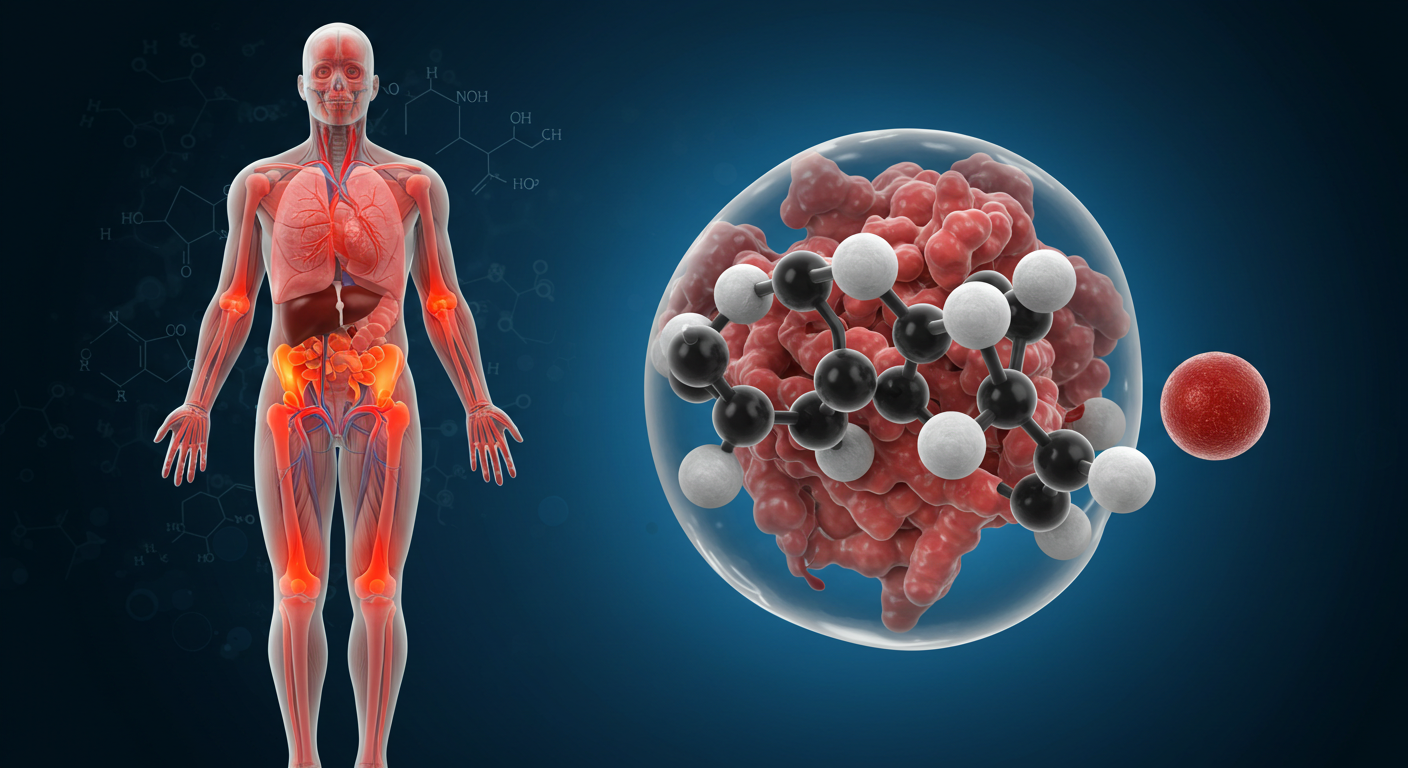Inflammatory diseases encompass a broad group of disorders characterized by chronic or acute inflammation, which can cause tissue damage and organ dysfunction. Astaxanthin , a potent antioxidant with significant anti-inflammatory properties, is emerging as a promising therapeutic agent for various inflammatory conditions.
The Role of Inflammation in Specific Diseases
1. Neurological Diseases
Neuroinflammation is a key factor in the development of neurodegenerative disorders such as Alzheimer's and Parkinson's.
- Evidence: Astaxanthin has demonstrated neuroprotective effects in animal models of these diseases, thanks to its ability to reduce neuroinflammation.
- Neuropathic pain: It has also shown efficacy in reducing inflammatory mediators such as NR2B , p-p38MAPK and TNF-α , helping to relieve neuropathic pain.
2. Diabetes Mellitus
Chronic inflammation plays an important role in the onset and progression of diabetes and its complications.
- Action of astaxanthin: In diabetic models, astaxanthin has reduced inflammation by modulating the NF-κB pathway, a crucial route in inflammatory processes.
3. Gastrointestinal Diseases
Inflammatory bowel disease (IBD) and Helicobacter pylori infection are gastrointestinal conditions marked by persistent inflammation.
- IBD: Astaxanthin has demonstrated efficacy in animal models by reducing inflammation and the expression of proinflammatory cytokines such as IL-1β , IL-6 and COX-2 .
- H. pylori : This microorganism is a major cause of gastrointestinal diseases. Astaxanthin protects against its effects by influencing cytokine release, inhibiting mitochondrial dysfunction, and reducing ROS-mediated IL-8 expression.
4. Liver and Kidney Diseases
- Liver: In conditions such as NAFLD and liver fibrosis, astaxanthin reduces inflammation by decreasing M1 macrophages and increasing M2 macrophages, and also inhibiting the recruitment of CD4+ and CD8+ cells to the liver. It also regulates the TGF-β/Smads pathway, which is crucial in the development of liver fibrosis.
- Kidney: Protects against acute kidney injury, such as that induced by ischemia-reperfusion or contrast agents, by reducing oxidative stress and inflammation.
5. Eye and Skin Disorders
- Eyes: In dry eye disease (DED), astaxanthin regulates HMGB1 expression through the PI3K/Akt pathway, protecting against ocular inflammation.
- Skin: In atopic dermatitis (AD), astaxanthin reduces skin inflammation and allergic responses by modulating inflammatory cytokines, improving skin quality.
A Broad Therapeutic Potential
Astaxanthin's ability to target key inflammatory mediators and modulate multiple signaling pathways underscores its versatility as an anti-inflammatory agent. This makes it a promising candidate for treating a wide range of inflammatory diseases, from neurological disorders to gastrointestinal, liver, and skin conditions.
Astaxanthin represents a natural solution with versatile anti-inflammatory actions that address various inflammatory processes in chronic and acute diseases.
At Sevens , we value the power of astaxanthin and work to integrate this incredible antioxidant into products designed to support your holistic well-being. Discover how astaxanthin can make a difference in your health and quality of life!




